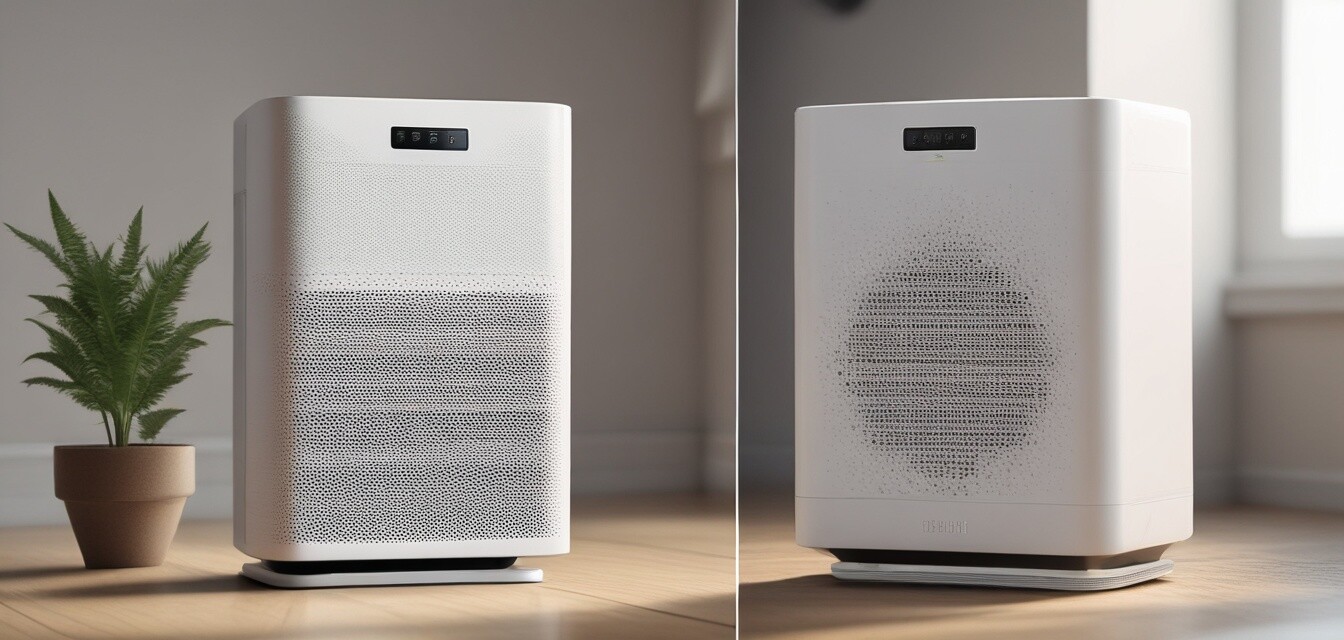
Budget vs. Premium HEPA Air Purifiers: Which Should You Buy?
Key Takeaways
- Budget HEPA air purifiers are great for simple air cleaning needs.
- Premium HEPA units typically offer advanced features and better performance.
- Consider room size, noise level, and filter replacement costs when choosing.
- Both types may use similar HEPA technology but can differ significantly in construction and lifespan.
- Check warranty policies, as premium models often provide longer warranties.
Choosing between budget and premium HEPA air purifiers can feel like a daunting task, especially with the plethora of options available in the market today. Both types serve the fundamental purpose of improving indoor air quality, but they can vary significantly in terms of performance, features, and costs. In this guide, we’ll explore the differences between budget and premium HEPA air purifiers, allowing you to make a well-informed decision.
Understanding HEPA Air Purification
HEPA (High-Efficiency Particulate Air) filters are designed to capture at least 99.97% of airborne particles that are 0.3 microns in size. This makes them effective against common allergens such as dust, pollen, and pet dander. However, the construction and technology behind the purifiers can vary, making it important to understand what each price tier offers.
Budget HEPA Air Purifiers
Budget HEPA air purifiers generally prioritize cost-effectiveness and simplicity. They can be an excellent choice for first-time users or those on a tight budget. Here are some common features:
| Feature | Description |
|---|---|
| Price Range | Typically under $100 |
| Filter Life | Usually requires more frequent filter replacements |
| Noise Level | Basic models may be noisier compared to premium options |
| Design | Simpler designs, often less aesthetic appeal |
Pros and Cons of Budget HEPA Air Purifiers
Pros
- Lower initial cost
- Easy to use and maintain
- Suitable for small spaces
Cons
- Less efficient than premium models
- Frequent filter replacements can add to long-term costs
- Limited features
Premium HEPA Air Purifiers
On the other hand, premium HEPA air purifiers are designed with advanced technology and features that enhance their efficiency and user experience. Here are the typical features found in premium models:
| Feature | Description |
|---|---|
| Price Range | Usually between $200 and $600 |
| Filter Life | Often longer-lasting filters |
| Noise Level | Quieter operation with noise-reduction features |
| Connectivity | Smart features and app connectivity with real-time monitoring |
Pros and Cons of Premium HEPA Air Purifiers
Pros
- High efficiency and superior air cleaning performance
- Advanced features and smart connectivity
- Longer-lasting filter life
Cons
- Higher initial cost
- More complex operation may not be necessary for all users
Comparing Performance: Budget vs. Premium HEPA Air Purifiers
| Aspect | Budget HEPA Air Purifiers | Premium HEPA Air Purifiers |
|---|---|---|
| Initial Cost | Low ($50 - $100) | High ($200 - $600) |
| Filter Quality | Basic HEPA filters | Enhanced HEPA and activated carbon filters |
| Room Coverage | Smaller areas (e.g., 100-300 sq. ft.) | Larger areas (e.g., 400-800 sq. ft.) |
| Smart Features | No | Yes, with app integration |
Which One Is Right for You?
Choosing between a budget and a premium HEPA air purifier should depend on your specific needs and preferences. If you are looking for a basic model for a small room or have limited needs, a budget option might be sufficient. However, if your goal is to ensure high-quality air purification over larger areas, and you appreciate modern features, a premium option might be the way to go.
Wrapping Up
Ultimately, investing in a HEPA air purifier can greatly improve your indoor air quality. By understanding the differences between budget and premium models, you'll be better equipped to make a decision that fits both your needs and your wallet. For more information on how to choose the right air purifier, check out our Buying Guides for tips and resources.
Tips for Choosing an Air Purifier
- Assess the size of the room where you'll use it.
- Look for models with energy-efficient certifications.
- Read reviews to gauge performance and reliability.
- Consider the costs of filter replacements.

